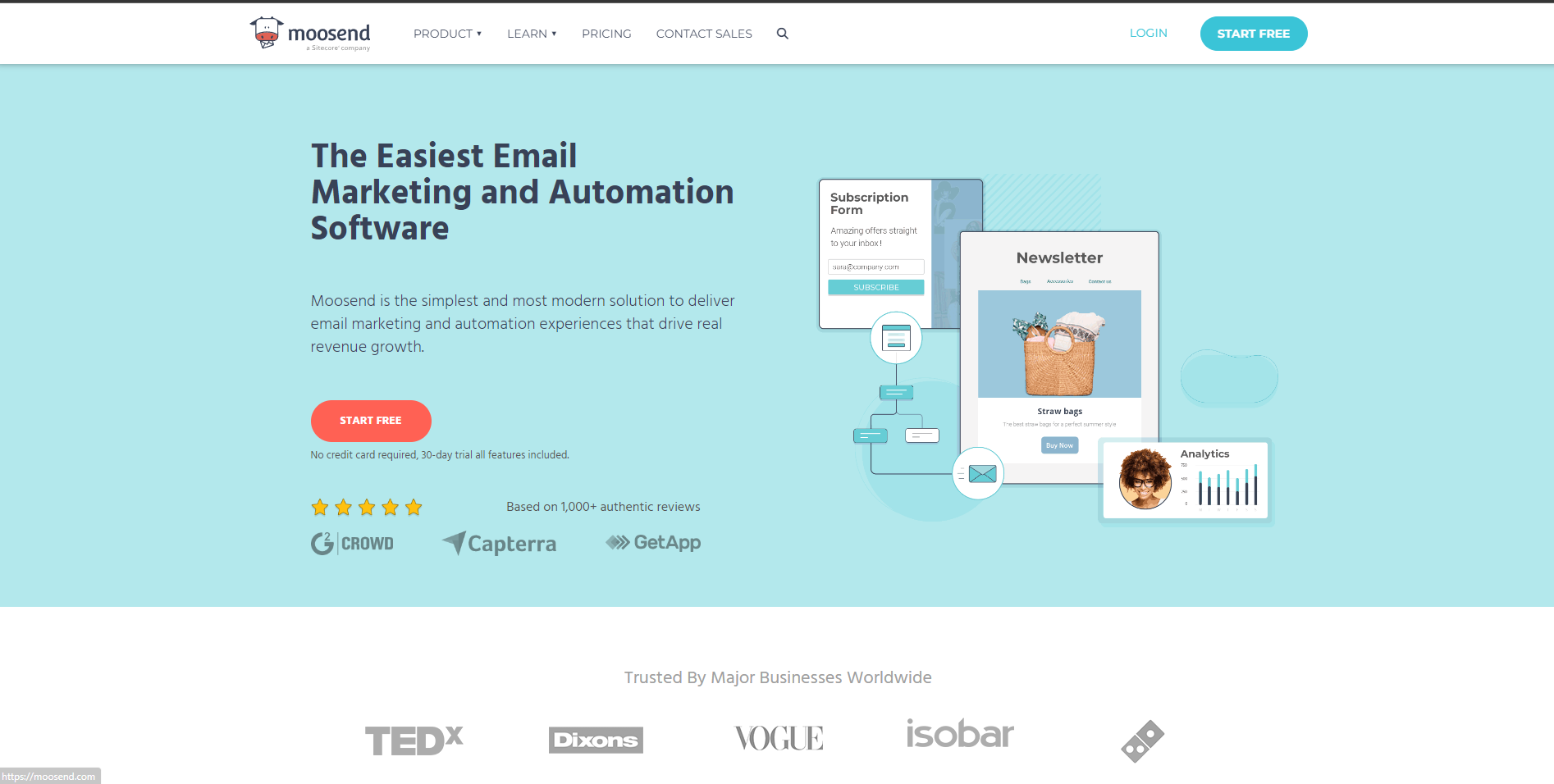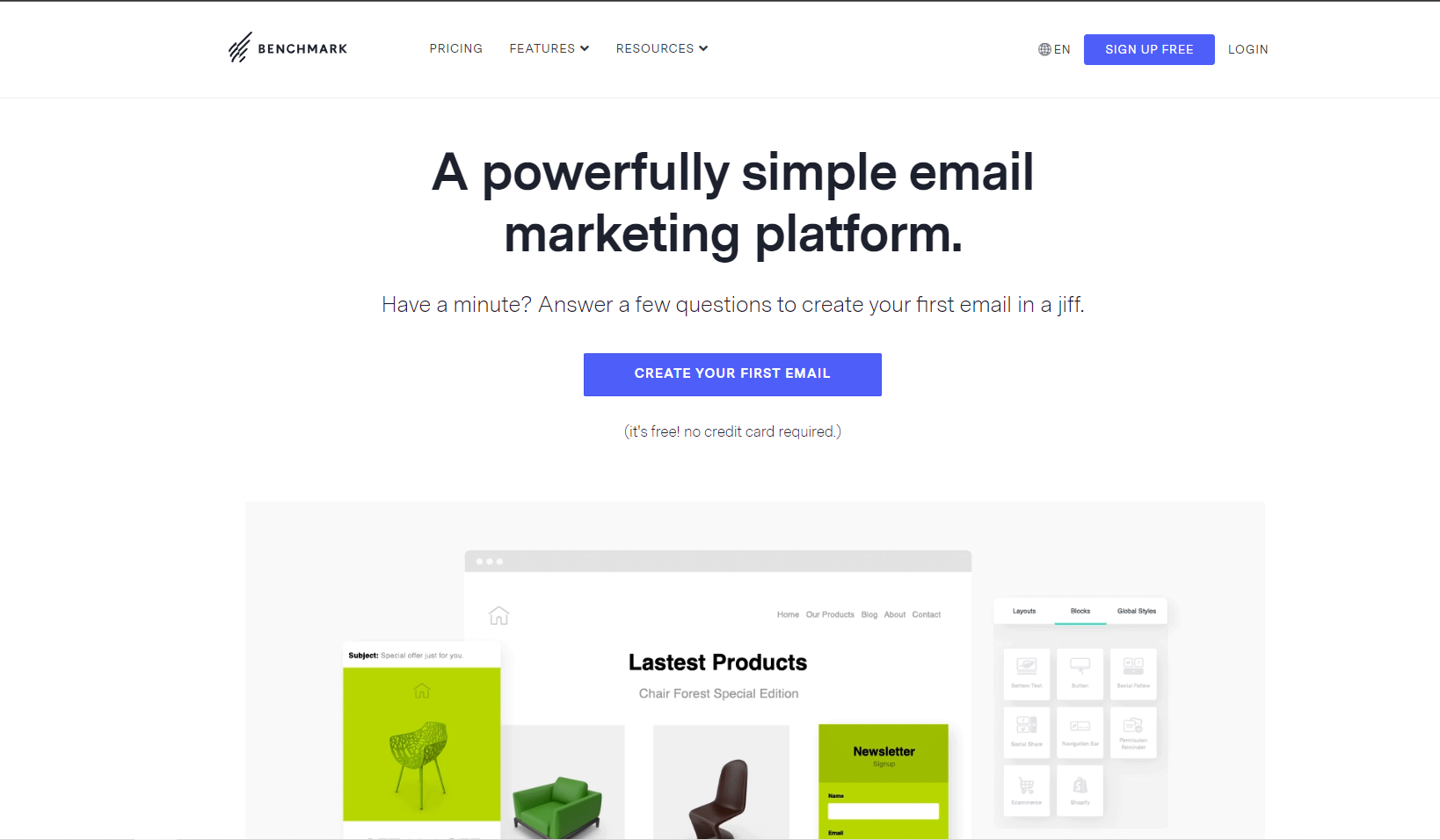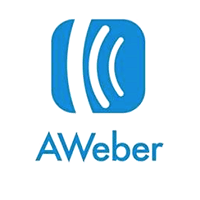MailChimp has long been one of the most popular email marketing platforms, valued for its simple user interface, email marketing automation features, and affordable pricing plans. However, as many businesses grow, they find themselves needing more advanced functionality than what MailChimp can provide.
There are a few key reasons businesses may find themselves wanting to move away from MailChimp. While MailChimp offers some basic workflows, businesses requiring more complex autoresponder sequences, sales funnels, or custom journeys need to upgrade to a new platform. These are the best Mailchimp alternatives if you aren’t satisfied with Mailchimp.
Brevo
If you want the best all-in-one email marketing platform & the best Mailchimp alternative, Brevo is for you.
Omnisend
Omnisend is the ideal choice if you're eCommerce focused and need a reliable and efficient email marketing tool.
HubSpot
HubSpot is perfect for various email automation needs, boasting some powerful and easy-to-use tools.
Active Campaign
Looking for an excellent Customer Relationship Management tool? Active Campaign is the ideal choice.
AWeber
AWeber is one of the best email marketing tools when it comes to email deliverability and overall open rates.
1. Brevo
Best Overall Mailchimp Alternative (Free, then $25/Month)
Brevo is a robust email marketing tool built to handle extremely high volumes with superior deliverability. It’s the best alternative to Mailchimp and offers advanced features like dynamic content personalization with segmentation and partial sends for A/B testing variants.
You can send emails to unlimited contacts. Brevo shines when it comes to deep analytics tracking campaign ROI and granular performance indicators.
The user interface provides extensive customization options for email builders along with hundreds of mobile-responsive templates. For developers, the REST API enables complex integrations and customizations within your marketing stack.
What makes Brevo a better MailChimp alternative:
- Brevo guarantees 99% inbox placement, even at high sending volumes thanks to its deliverability optimization technology. MailChimp deliverability tends to decline sharply past 100k monthly emails.
- Dynamic content allows personalized, segmented messages tailored to individual subscriber preferences and behaviors for better engagement.
- The partial send feature lets you A/B test different email variants to determine optimal messaging.
- The email marketing software has in-depth analytics that reveals performance metrics like CTR, conversion rates, ROI, and subscriber lifetime value – not just opens and clicks.
- Brevo is one of the best email marketing services that integrates with over 1,500+ apps through Zapier, which gives it an edge compared to MailChimp’s ~800 native integrations.
2. Omnisend
Best for E-commerce Email Marketing (Free, then $16/Month)
Omnisend empowers e-commerce marketers to deliver personalized customer experiences across the entire buyer journey. Beyond email, it handles SMS, web push notifications, and messenger marketing within one platform. AI-powered automation helps turn leads into loyal customers.
What makes Omnisend a better MailChimp alternative:
- Advanced segmentation options including cart-based triggers to target shoppers who abandoned purchases. MailChimp lacks e-commerce-specific segmentation.
- Visual campaign builder to design beautiful, mobile-responsive email templates without code. MailChimp builders are less intuitive.
- Automated post-purchase follow-up flows to improve retention through coupon codes and customer satisfaction surveys.
- Integration with all major e-commerce platforms like Shopify and WooCommerce to track customer activity as the data source for campaigns.
- Social proof marketing through user-generated content campaigns that dynamically showcase customers’ photos and reviews.
3. HubSpot
Best for Marketing and Sales Automation (Free, then $20/Month)
HubSpot is one of the best alternatives to Mailchimp and provides an all-in-one inbound marketing, sales, and CRM platform empowering teams to attract leads, close deals, and delight customers. Robust analytics provide insights to optimize every campaign and workflow.
What makes HubSpot a better MailChimp alternative:
- Lead scoring and grading systems to identify the hottest leads based on engagement metrics and assign them automatically to sales reps.
- A unified database centralizes all prospect and customer data in a single view accessible across departments.
- Workflow automation nurtures leads through multi-touch, personalized email sequences tied to their behaviors.
- Advanced A/B testing capabilities on email campaigns, landing pages, and calls-to-action. The landing page builder is more powerful and allows you to create landing pages quickly and easily.
- Over 300 integrations with apps like Stripe, Slack, and Gmail along with bundles tailored for major ecommerce platforms.
4. ActiveCampaign
Best for Marketing Automation and CRM ($29/Month)
ActiveCampaign enables businesses to combine robust email marketing, sales automation, and CRM capabilities within a single integrated platform.
This consolidates all customer data into one centralized hub accessible enterprise-wide for segmented targeting based on real-time behaviors and trends. Over 500 pre-built workflows automate personalized cross-channel experiences for leads at every stage.
What makes ActiveCampaign better than MailChimp:
- Automated sales funnel workflows nurture leads using a unique scoring system that calculates engagement, recency, frequency, and other factors to identify sales-ready prospects for immediate outreach to accelerate deals. MailChimp lacks advanced lead-scoring capabilities.
- Built-in site tracking and event-based trigger setting enable highly tailored messaging no matter where prospects and customers interact across channels beyond just email campaigns. MailChimp is email-centric only.
- Custom objects and tag creation provide ultimate flexibility to build data structures matching your business’s unique needs and processes for granular tracking and segmentation. MailChimp offers limited default tags.
- Detailed contact timelines give marketers full visibility into every interaction and touchpoint with leads and customers over time instead of just campaign metrics in isolation. This insight facilitates improved personalization.
- Over 750 native integrations with leading marketing applications facilitate the building of highly advanced martech stacks tailored to any use case needed. MailChimp has less than 800 integrations in total.
5. AWeber
Best for Growing Small Businesses Seeking High Email Deliverability (Free, then $12.50/Month)
AWeber is an optimal email marketing solution specifically tailored to small businesses as they scale up email list size and campaign complexity.
A key strength is its highly optimized deliverability through both manual checking by experts combined with AI-powered inbox placement technology. This enables sending growing volumes while maintaining exceptional inboxing and engagement rates where other platforms see declines.
Beyond robust deliverability, AWeber offers intelligent workflow automation powered by machine learning for personalization along with advanced subscriber segmentation capabilities.
Its expanded metrics visibility provides small business owners valuable insights into lifetime value and ROI.
For those needing to closely track marketing performance impacting growth and revenue, AWeber delivers over 700+ native integrations with CRMs, analytics, payment processors, and other critical platforms.
What makes AWeber better than MailChimp:
- A dedicated deliverability team manually reviews sent emails along with AI tools to achieve 99% inbox placement rates for subscribers. MailChimp’s more basic deliverability checks see declining rates past 100k sends per month.
- Automated multichannel welcome series allows segmented delivery of emails, push notifications, and text messages based on demographics and behaviors. MailChimp focuses solely on email.
- An integrated funnel builder guides subscribers through stages mapped to business outcomes with tailored content. Workflows are simpler in MailChimp.
- Subscriber profiles offer visibility into real-time metrics like lifetime value, campaign ROI, and purchase history instead of just contact info.
- Over 700+ native integrations with CRMs, analytics platforms, payment processors, and other martech stack elements. MailChimp has less than 800 in total.
6. MailerLite
Best for Easy Email Automation Optimized for Small Business Owners (Free, then $10/Month)
MailerLite makes it fast and simple for less technical small business owners to set up automated email funnels, landing pages, and popups without needing to learn complex platforms.
It focuses on providing intuitive core features that solopreneurs and early-stage startups need for list building and segmentation without overwhelming users.
The easy-to-navigate editor and pre-designed template library help non-coders create stylish, high-converting emails, forms, and landing pages quickly.
For growing companies without big marketing teams, MailerLite offers essential automation tools to convert more traffic and continuously engage subscribers after signup leading to sales.
Affordable pricing tiers scale gracefully so costs remain predictable despite larger list sizes. For those seeking basic email marketing capabilities plus built-in lead gen options without high learning curves, MailerLite delivers.
What makes MailerLite better than MailChimp:
- Pre-designed templates and drag-and-drop editor enable easy customization of opt-in forms, emails, and landing pages without coding skills.
- Automated welcome sequences introduce subscribers to new content that educates them on key offerings right after signup.
- Built-in popups and landing pages facilitate list growth with beautiful designs that convert traffic into leads.
- Group-based milestones trigger actions like sending a specific series of emails when subscribers reach set measurable objectives.
- Affordable pricing scales up gracefully as send volume grows versus MailChimp’s tiered plans that spike costs.
7. Campaigner
Best for High Volume B2B Marketing and Advanced Segmentation ($59/Month)
Campaigner enables B2B companies with large databases of contacts and complex sales processes to unlock the power of 1-to-1 engagement across every channel. Custom objects allow unmatched flexibility to model data based on products, regions, buyer stages, etc. for precise targeting.
Robust segmentation options combine demographic, firmographic, and engagement metrics then layer on further filters using tags, custom fields, and flexible Boolean logic. This empowers hyper-targeted groups for personalized outreach driving faster sales cycles.
What makes Campaigner better than MailChimp:
- Custom objects feature allows you to structure data models matching unique business processes, sales funnels, and complex hierarchies.
- AI-powered site visitor tracking informs lead scoring and campaign segmentation based on real-time behaviors.
- Automated triggers send contextually relevant follow-ups based on actions like email engagement, site visits, form fills, and more.
- Predictive analytics tap into machine learning to model subscriber engagement rates and optimize deliverability.
- Robust segmentation options combine demographic, firmographics, engagement data, and custom tags for super-targeted groups.
8. BigMailer
Best for Enterprise-Scale Transactional and Promotional Email Delivery (Free, then $5/Month)
Where MailChimp caters to small businesses, BigMailer is optimized for global enterprise powerhouses sending massive volumes of transactional emails including order receipts plus high-frequency promotional campaigns.
Top financial institutions, e-commerce retailers, and technology brands that measure email volumes in billions annually rely on BigMailer’s high-capacity cloud email delivery infrastructure.
With email production levels starting in the hundreds of millions of monthly messages, sub-second delivery speeds and 100% uptime SLAs become critically important.
BigMailer’s reliability stems from its dedicated IP ranges, resilient server architecture, and direct relationships with ISPs to maintain a positive sender reputation across regions.
Compliance needs also grow exponentially – BigMailer’s layers of encryption, privacy tools, and international data storage ease this burden for clients like banks and insurance providers.
What makes BigMailer better than MailChimp:
- Proactive deliverability management includes working directly with ISPs to maintain exceptional sender reputation across regions.
- Multi-layered compliance features provide data encryption, advanced consent tools, and data center storage to meet privacy regulations globally.
- Precise volume forecasting and guaranteed SLAs ensure that high-priority transactional emails like order confirmations or password reset messages always get through quickly.
- Advanced message scheduling options including predictive timing based on opens and click rates for each subscriber.
- Right-sized infrastructure guarantees speed, reliability, and 100% uptime even during peak traffic events like Cyber Monday promotional campaigns.
9. Constant Contact
Best for Email Marketing Simplicity (Free Trial, then $12/Month)
Constant Contact offers an easy-to-use email marketing solution designed for small businesses looking for affordable simplicity without complex features. It focuses on essentials like beautiful templates, target segmentation, and basic automation.
What makes Constant Contact better than MailChimp:
- One-click import of existing customer contacts from Excel or an integrated POS system makes getting started fast. MailChimp requires manual importing and list building.
- Pre-defined customer lifecycle stages facilitate timely email sends after purchases, site visits, and other key events including automated renewal reminders.
- Intuitive survey builder helps collect customer satisfaction feedback to enhance engagement as an integrated component within emails.
- Facebook and Instagram ad creation streamlines cross-channel promotion to turn existing social media followers into email subscribers.
- Award-winning customer support and tailored onboarding training guide new email marketers through setup.
10. Sendinblue
Best For: SMBs Seeking Multi-Channel Marketing Including SMS and Messaging (Free, then $25/Month)
Sendinblue is one of the best Mailchimp alternatives for small businesses. The email marketing software meets growing SMBs’ needs for unified digital marketing campaigns that engage customers beyond email alone.
Key channels integrated into one platform include SMS text messaging, Facebook Messenger, web push notifications, and retargeting display ads. This consolidation saves small teams time while enabling more personalized outreach exactly where audiences prefer interacting.
Chatbot builders, multi-step transactional workflows tied to order statuses, and mobile-optimized templates help modern e-commerce brands delight customers after purchases while winning new leads between purchases.
Sendinblue’s generous free tier enables testing expanded capabilities before paying, overcoming Mailchimp’s narrow restraints. For those needing an all-in-one shop to make every digital touchpoint reinforce their brand across channels, Sendinblue delivers.
What makes Sendinblue better than MailChimp:
- SMS marketing with options for mass text blasts as well as one-to-one conversational messaging integrated directly with existing email subscriber data.
- Chatbot builder lets you engage website visitors with personalized messaging sequences triggered by behaviors and questions to nurture leads.
- Retargeting display ads help turn email list site visitors into buyers by serving them dynamic banners across the web reinforcing your brand.
- Advanced transactional capabilities including visually designing multi-step workflows with triggers tailored to order status change common in e-commerce.
- The generous free plan allows managing small lists before paying while MailChimp’s version is highly limited unless when upgrading.
11. Moosend
Best for E-Commerce Email and SMS Marketing (Free 30-day Trial, then $9/Month)

Moosend stands out as an email marketing platform tailored for small business owners and digital agencies who value beautiful designs combined with easy personalization to convert readers into buyers.
Drag-and-drop modular blocks make professionally styled emails and landing pages simple without coding expertise.
Backed by AI, Moosend optimizes subject lines, content formatting, calls to action, and send times for engagement.
With an easy-to-navigate visual interface and generous free plan to test capabilities, solopreneurs, early-stage startups, and their support teams can create on-brand assets driving growth quickly.
What makes Moosend better than MailChimp:
- An integrated visual editor enables dragging and dropping modular content blocks to quickly customize responsive landing pages and opt-in forms that convert.
- AI-powered features continually test and optimize elements like email subject lines, calls to action, content blocks, and send times to improve performance.
- Sophisticated automation flows react to detailed subscriber behavior within your emails like link clicks, multiple opens, forwards, etc. to trigger perfectly timed follow-ups.
- Advanced analytic capabilities reveal metrics related to lifetime engagement and retention rates in addition to typical email campaign performance indicators provided by MailChimp.
- The generous free plan offers an extensive feature set allowing new users to get started and test capabilities immediately without payment hurdles.
12. Benchmark Email
Best for High-Volume B2B Marketing (Free Plan, then $13/Month)

Benchmark Email enables B2B companies to execute highly personalized, trigger-based email campaigns integrating CRM data for detailed reporting. It is purpose-built for demanding marketers sending 50+ million emails per year.
What makes Benchmark Email better than MailChimp:
- CRM and marketing automation platform integrations sync subscriber data bi-directionally so user behaviors inform future outreach across systems.
- Account-based marketing tools personalize emails dynamically pulling CRM data like firmographic details for hyper-targeted messaging by company.
- Advanced API and SMTP integrations allow programmatically injecting customer intelligence to further customize content per reader.
- Comprehensive analytics reveal granular engagement rates, lead quality trends, and custom model performance to sharpen B2B sales targeting over time.
- Dedicated IP addresses with proprietary deliverability tools guarantee inbox placement despite higher monthly send volumes unsuited for Mailchimp.
Features to Consider For a MailChimp Alternative
1. Ease of Use
Ease of use should be a top priority when searching for an alternative email service to replace Constant Contact.
Since Constant Contact appeals primarily to small business owners and entrepreneurs without deep technical skills, staying with a platform that offers simplicity will ensure the transition goes smoothly.
Consider how intuitive the interface is to navigate when executing essential tasks like creating sign-up forms, drag-and-drop email builders, automation workflow creation, and content scheduling.
Complex platforms with steep learning curves often lead to user frustration or require hiring costly experts, putting further strains on small teams.
Prioritizing an easy-to-use platform also saves valuable time by speeding up execution once the basics are learned. Business owners can focus more energy on crafting quality content and creatively engaging their subscriber base rather than fighting against the tools.
With email marketing being a vital touchpoint to drive growth for any business, ease of use facilitates success faster.
2. Design and Customization
The ability to craft professional, visually appealing email and landing page designs while still customizing them to reinforce brand identity is pivotal for small businesses seeking a Constant Contact alternative platform.
Given most users are non-technical entrepreneurs lacking complex coding skills, being able to personalize templates or easily build great-looking assets from scratch ensures outreach efforts consistently reflect brand standards.
Readers will better recognize and engage with content clearly linked to known company voices, accelerating conversions.
Prioritizing email and landing page design also directly strengthens engagement as subscribers respond to aesthetically pleasing, mobile-responsive content formatted to drive actions. Pairing quality presentations with custom frames around core offerings or value propositions helps messages resonate.
Alternatives matching Constant Contact’s balance between simplicity and polish for even novice users to make emails and forms unmistakably their own are key to evaluate first. This allows for maintaining visibility and trust while transitioning from one tool to another.
3. Blogging Tools
Seeking alternative email marketing platforms with integrated blogging tools should be a priority for small business owners transitioning from Constant Contact. Natively creating quality content that nurtures leads and demonstrates expertise accelerates growth.
Opting for tools with streamlined post-creation capabilities that simplify writing, formatting, and content scheduling across channels saves valuable time compared to stand-alone site blogs. Guiding users through transforming written ideas into newsletter inserts, social media updates, and website copy fast.
Equally important, integrated blogging bolsters lead gen and retention. Syndicating posts into multiple formats provides existing customers with helpful material while attracting organic traffic from search engines simultaneously.
This compounding effect strengthens any nascent content marketing program’s ROI which fuels bigger budgets over time.
4. E-commerce Capabilities
The ability to leverage email marketing to complement e-commerce sales funnels matters greatly for DTC brands moving beyond Constant Contact. Seeking alternative tools with deep shopping cart integrations, customer journey mapping, and product promotion templates should take priority.
Understanding a subscriber’s lifecycle stage whether it be cart abandonment or repeat purchaser allows sending highly targeted renewal offers and win-back messaging driving higher CLV.
Advanced segmentation by purchase history or product affinities enables more personalized recommendations showcasing inventory expressly matching their demonstrated interests.
Automated post-purchase review requests or incentivized sharing also boosts visibility. For e-commerce merchants, these expanded capabilities increase the value derived from the core email channel.
Testing tools purpose-built to convert site traffic into loyal customers with relevant storefront ties will reveal better options to scale profitably.
5. SEO Tools
Evaluating whether email marketing platform alternatives to Constant Contact also provides SEO automation will be pivotal for driving organic growth. Optimization expands reach beyond just mailing lists ensuring content, forms, and pages surface readily in search engines.
Tools that simplify search ranking fundamentals including meta tag creator workflows, site indexing facilitation, and page speed trackers will bolster performance for non-technical teams.
Equally important, monitoring keyword metrics over time, identifying higher-ranking competitors stealing traffic, and recommending new terms to target adds an advantage.
Built-in SEO sounds alerts on technical errors obstructing Google crawling capabilities or flags thin page copy limiting relevance signals.
These insights coupled with suggested fixes help entrepreneurs improve discoverability and conversions from new visitors that compound revenues over time – a vital growth driver alongside email subscriber outreach.
6. Integrations
The ability to connect email marketing platforms with other business systems should take priority when assessing replacements for Constant Contact. Third-party integrations stitch together broader martech stacks enabling small teams to execute sophisticated strategies without intensive coding skills.
Alternatives offering deep ties to popular CRMs, analytics programs, chat solutions, and advertising channels expand what customized segmentation, lifecycle-based triggers, and cross-channel reporting is possible.
Rather than just sending emails, integration facilitates executing unified experiences across touchpoints based on real-time subscriber and customer signals from every tool.
This consolidation provides small business owners unmatched visibility into multi-channel performance from a single intuitive dashboard.
Saving vast hours manually synchronizing campaign data, activity metrics, and audience insights is possible with platforms enabling robust bi-directional integrations with common apps entrepreneurs already use daily.
7. Analytics and Reporting
Seeking alternative email marketing platforms with comprehensive analytics and reporting functionality tailored to small businesses should take priority over Constant Contact’s more limited capabilities.
Evaluating tools that centralize subscriber engagement data from emails, landing page forms, post-click website activity, and more establishes clearer ROI measures of outreach programs over time.
Granular visibility into open, clickthrough, and conversion rates compared to customer lifetime value projections informs optimal list segmentation.
Equally important, easy-to-interpret reports including suggested improvements based on response trends enable entrepreneurs with little analytics expertise to continually optimize messaging themselves.
Automating notifications when benchmarks for deliverability, quality lead volume, or sales-influenced dip also facilitates prompt optimization.
For small teams balancing extensive responsibilities, leveraging analytics rather than intuiting success is imperative so focusing on Constant Contact alternatives with robust insights packages anchored in immediately actionable steps will maximize profitable growth.
8. Customer Support and Community
Seeking alternative email marketing platforms with exceptional customer service and engaged user communities merits strong consideration when moving beyond Constant Contact. Many competitors offer varying tiers of live chat, phone, email, and ticket support along with vast self-serve help centers.
Comparing the responsiveness, technical competencies, and communication skills of each provider’s team will minimize complications in adapting to new tools.
Equally valuable, assessing the knowledge shared across community forums, blogs, and influencers fills gaps no onboarding guide can fully cover.
Between trusted admins and hands-on troubleshooting guides, customers have support navigating complex issues optimizing deliverability, crafting effective automations, importing data, and executing advanced integrations.
No small business owner has time to comb dense manuals so alternatives matching Constant Contact’s stellar assistance merit priority before switching.
9. Pricing
Comparing pricing models and predictable cost structures should take priority when examining Constant Contact alternatives. Beyond base monthly plans tied to subscriber counts, focusing on potential add-on fees, overage penalties, and true “all-in” costs presents a transparent view.
Factor whether capabilities like landing pages, SMS messaging, automation builders or premium support carry separate recurrent fees or if bundling exists. Contrast plans segmenting functionality tiers versus more encompassing suites granting full access.
Caution surprises down the line from unclear usage calculations or shifting subscriber counts swinging monthly bills.
For small business owners, managing variable expenses through explosive growth phases remains challenging enough. Seeking Constant Contact competitor pricing aligned to committed budgets despite significant audience gains makes fiscal planning easier and sustains momentum long-term.
10. Reviews and Reputation
Evaluating in-depth reviews across comparative analysis sites, user testimonials, expert blog content, and social sentiment should influence any small business owners’ selection between Constant Contact alternative platforms.
Focus specifically on feedback related to delivering responsive support, upholding strict email deliverability standards, providing transparent pricing, and matching positive customer experiences over many years not just launch hype.
Examine case studies from brands within similar industries detailing performance benchmarks over the course of partnerships rather than just surface-level testimonials.
Comparing long-tenured client retention rates indirectly signals trust in maintaining instrumental uptime and platform evolution meeting emerging business needs over time as well.
Vetting Constant Contact competitors on core pillars vital for sustainable client success ensures changing tools empower sales growth rather than interrupt progress. Identifying reputable supportive partners committed for the long haul removes unnecessary future risks.
Summary and Top Picks
In this guide, we covered key considerations small business owners face when seeking a new email marketing platform alternative to replace Constant Contact.
While core capabilities around ease of use, design, blogging, and e-commerce integration remain vital, expanding needs around analytics, customer support, transparent pricing, and long-term viability deserve equal priority during evaluations.
This cross-section represents emerging leaders delivering the capabilities and support vital for long-term sustainable client success at scale. Their specializations also align well with common small business use cases from selling online products to managing distributed sales teams.
Brevo
If you want the best all-in-one email marketing platform & the best Mailchimp alternative, Brevo is for you.
Omnisend
Omnisend is the ideal choice if you're eCommerce focused and need a reliable and efficient email marketing tool.
HubSpot
HubSpot is perfect for various email automation needs, boasting some powerful and easy-to-use tools.
Active Campaign
Looking for an excellent Customer Relationship Management tool? Active Campaign is the ideal choice.
AWeber
AWeber is one of the best email marketing tools when it comes to email deliverability and overall open rates.





